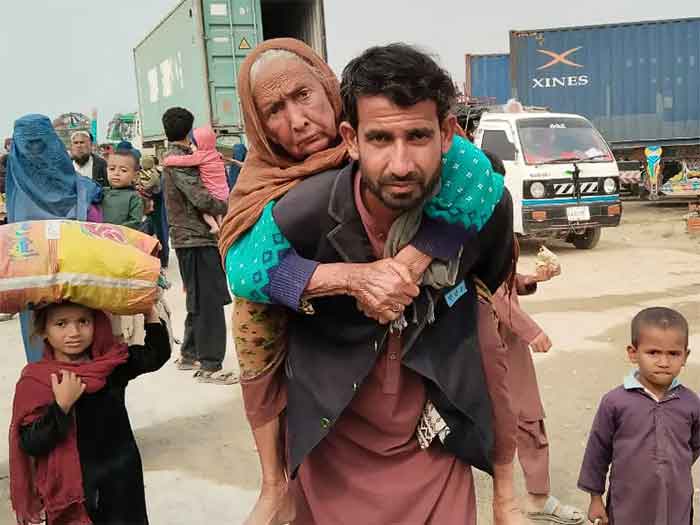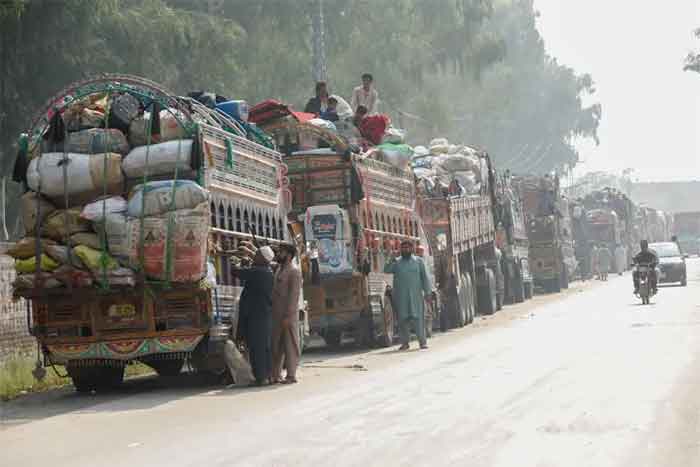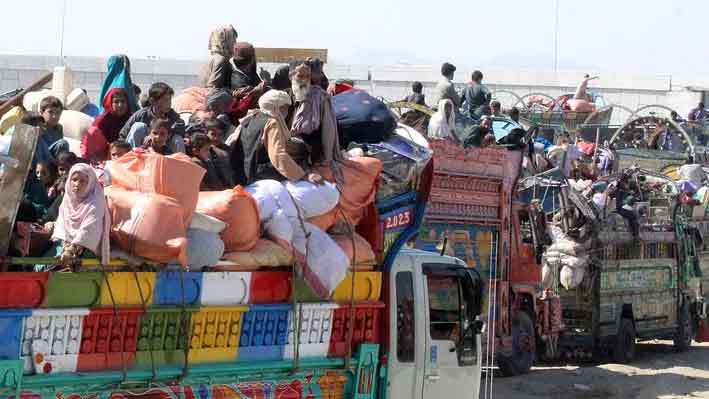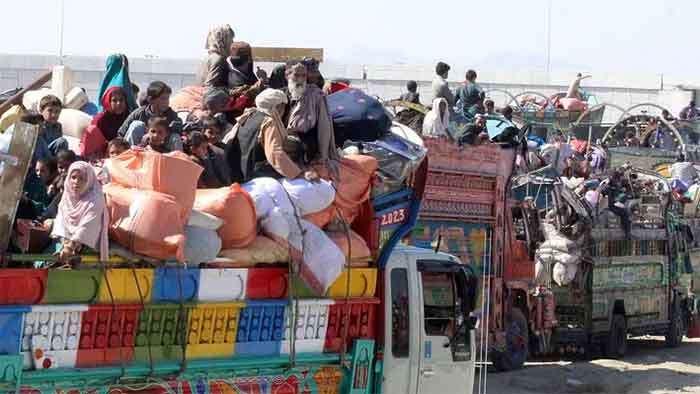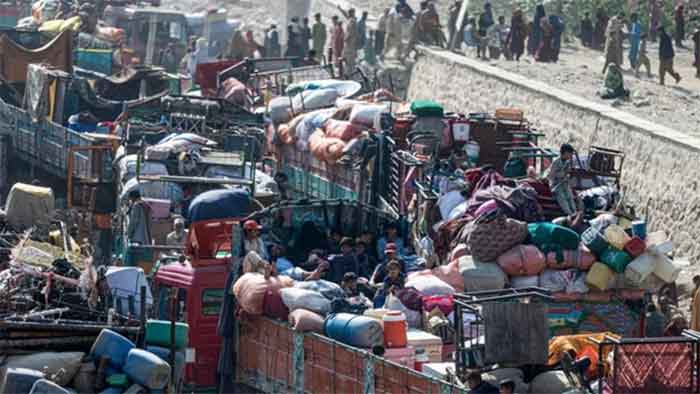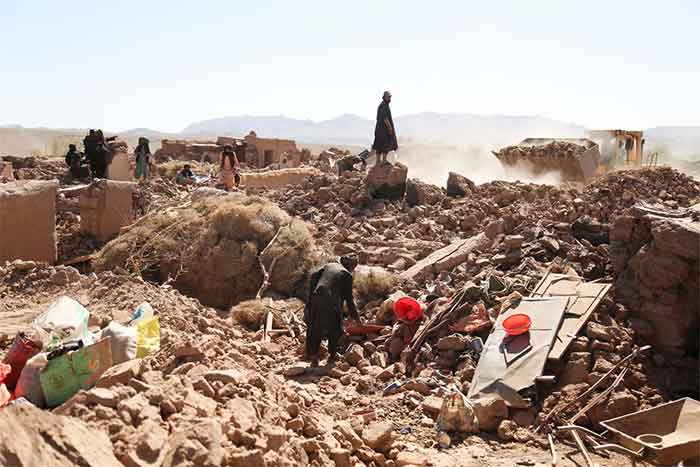
Executions, stonings and amputations are possible punishments for crimes once more in Taliban-controlled Afghanistan.
Taliban leader Mullah Haibatullah Akhundzada ordered Afghan judges to impose Sharia-law punishments for certain crimes, according to a tweet from Zabihullah Mujahid, Mr. Akhundzada’s spokesman.
Mullah Akhundzada has ordered Afghan judges to fully implement sharia law and its punishments, which include mutilations, flogging and executions. The announcement was made on Sunday by the Taliban’s chief spokesman Zabihullah Mujahid.
“Carefully examine the files of thieves, kidnappers and seditionists. In those files in which all the Sharia conditions of Hudud and Qisas have been fulfilled, you are obliged to implement. This is the ruling of Sharia, and my command, which is obligatory,” Mujahid quoted the elusive supreme leader, whose voice has not been recorded since the Taliban takeover last August, as having said.
In Islamic law, the so-called Hudud crimes require both very conclusive evidence for the accused to be convicted, while carrying heavy, traumatic punishments such as amputation of hands or feet, as well as flogging and execution. This group of crimes includes such offenses as theft, highway robbery, apostasy, adultery and falsely accusing someone of it, slander, drinking alcohol, and rebellion.
Qisas is effectively an Islamic variant of retributive, “eye for an eye” justice. The concept covers such crimes as deliberate injury or murder, while, at the same time allowing victims or their families to accept material compensation instead of punishment.
Qisas are punishments for murders or physical assaults that are determined by a judge. The University of Texas School of Law said that can often involve a retaliation by the victim or relatives of the victim, or by paying blood money.
The Taliban has been gradually tightening its grip on power, while bringing life in Afghanistan into line with the strict Islamic norms the group follows. In April, the Taliban government lived up to its promises and banned the cultivation of poppy, the source of sap that is refined into morphine and heroin. Afghanistan is estimated to have accounted for 90% of the global opium trade in 2021, with poppy cultivation being its major source of income.
“If anyone violates the decree, the crop will be destroyed and the violator will be treated according to Sharia law,” the group warned at the time.
Women Banned From Parks By Taliban
Bottom of Form
Women in Afghanistan have been banned from parks by the Taliban, according to a Reuters report.
A spokesman for the Afghan Ministry for the Propagation of Virtue and Prevention of Vice, Mohammad Akif Muhajir, told local media that Afghan women would no longer be permitted to visit parks.
Muhajir said, “For the last 14 or 15 months, we were trying to provide an environment according to Sharia (Islamic law) and our culture for women to go to the parks,” he said, according to Reuters.
“Unfortunately, the owners of parks did not cooperate with us very well, and also, the women did not observe hijab as was suggested. For now, the decision has been taken that they are banned,” he continued.
It was not made clear how long the ban would last.
In May of this year, the Taliban ruled that women must cover their faces in public, with the ideal face covering being the all-encompassing burqa.
Should a woman not abide by these rules, her father or closest male relative will be visited and eventually imprisoned or fired from government jobs.
Since the Taliban seized Kabul in August 2021, they have enforced punitive laws restricting women’s lives and activities.
Gyms And Public Baths Off-limits For Afghan Women: Declares Taliban
Other media reports said:
The Taliban declared on Sunday that gyms and public baths are now off-limits to Afghan women.
This comes after the Taliban last week banned women from parks and funfairs.
Despite the hard-line Islamists promising a softer version of the rule that characterized their first stint in power, the Taliban are increasingly squeezing women out of public life since their return last year.
Most women working for the government have lost their jobs.
Women are also barred from travelling without a male relative, and must cover up with a burka or hijab when out of the home.
Schools for teenage girls have also been shuttered across most of the country since the return of the Taliban.
“Gyms are closed for women because their trainers were male and some of them were combined gyms,” Akif Mohajir told reporters.
Activists have said the increasing restrictions on women are an attempt to stop them from gathering to organize opposition to the Taliban’s rule.
Small groups of women have staged frequent flash protests in Kabul and other major cities, risking the wrath of Taliban officials who have beaten and detained them.
In March, the theocratic group closed girls’ high schools and issued orders for girls aged 12-18 to stay home.
The Taliban have also introduced rules limiting women’s travel without male chaperones.
The UN has issued several statements decrying these decisions, saying that Taliban leaders are institutionalizing large-scale and systematic gender-based discrimination and violence against women and girls and limiting their education, was “profoundly damaging to a generation of girls and the future of Afghanistan.”
Afghan Women Arrested While Defending Rights
A report by Scoop (https://www.scoop.co.nz/stories/WO2211/S00106/afghan-women-arrested-while-defending-rights.htm) said:
Responding to the arrests of at least three prominent women human rights defenders Zarifa Yaqoobi, Farhat Popalzai and Humaira Yusuf and their colleagues by the Taliban in the last ten days, Samira Hamidi, Amnesty International’s South Asia Campaigner, said:
“The recent wave of arrests of women human rights defenders in Afghanistan is yet another attempt to quell all forms of peaceful protests and any dissent against the Taliban’s oppressive policies that violate human rights, particularly of women and girls. Such arrests will no doubt increase the environment of fear and reprisal in a continuing system of repression that goes unchecked.
“As the de-facto authorities, the Taliban must comply with international human rights law and standards, and immediately and unconditionally release these women human rights defenders and their colleagues who have been arrested solely for peacefully exercising their rights to freedom of expression, association, and peaceful assembly. We are further concerned about the safety and integrity of Zarifa Yaqoobi, Farhat Popalzai and Humaira Yusuf and their colleagues who have been detained. In the past, those arbitrarily detained under the Taliban have been tortured and otherwise ill-treated, many times denied access to legal remedies and family visits.
“The Taliban must be held accountable for their human rights abuses and violations as they continue to act with impunity. The international community must condemn these acts, both publicly and in their private interactions with the Taliban and send a clear message that their current policies towards women and girls are not acceptable.”
On 4 November, Taliban detained women human rights defender Zarifa Yaqoobi and her colleagues during a press conference announcing the formation of “Afghan Women Movement for Equality” in Dasht-e Barchi area of Kabul. Reportedly, about 60 Taliban members stormed the press conference venue to disrupt the event and deleted photos and video from cellphones of all event participants.
The next day, UN High Commissioner for Human Rights issued a statement on the arrests urging the de facto authorities to respect the rights to freedom of expression and peaceful assembly without fear of arrest or intimidation.
On 5 November, in a press conference, the Taliban spokesman Zabihullah Mujahid said that the women’s rights activists ‘are being encouraged and told to protest and create distrust against the Islamic Emirate.’
On 8 November, prominent young activist Farhat Popalzai was arrested by the Taliban according to reports by the Afghan news agency Jaama Press. She is one of the founders of the ‘Spontaneous Movement of Afghan Women’.
On 13 November, another woman human rights defender, Humaira Yusuf, was taken into custody by the Taliban as per information from sources to Amnesty International.
This recent wave of arrests of women human rights defenders and peaceful protestors comes after months of suppression of the rights of women and girls in the country by the Taliban documented by Amnesty International and other civil society organizations. Women and girls have been barred from exercising their most basic rights, including the rights to freedom of movement, to education – as girls’ school beyond grade six remained closed – and political participation.

